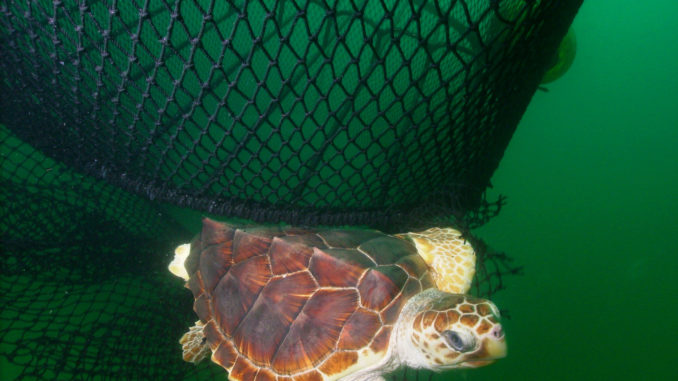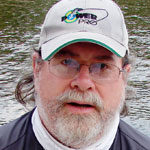
NCDMF hasn’t received permits from feds for incidental take of sea turtles
Two large areas of North Carolina’s coastal waters expected to reopen for large-mesh gill nets on Sept. 1 will remain closed indefinitely because federal permits allowing some interaction with endangered sea turtles have not been issued.
In a proclamation issued Aug. 27, Dr. Louis Daniel, director of the N.C. Division of Marine Fisheries, ordered the areas to remain closed indefinitely. The areas that remain closed include Pamlico and northern Core Sound and all waters from the US 58 bridge between Cape Carteret and Emerald Isle south and west to the South Carolina state line. The southern Core Sound, Back Sound, the Straits and North River are also closed to large-mesh gill nets, but those areas are scheduled to reopen on Oct. 14.
Large-mesh gill nets are those nets whose stretched mesh measures four to 6 ½ inches. These nets are used primarily to catch flounder, but are known to entangle sea turtles. An Incidental Take Permit (ITP) is a federal permit, issued under Section 10 of the Endangered Species Act (ESA), that allows a limited number of a species protected under the provisions of the ESA to be caught while participating in an otherwise lawful activity.
“We were expecting the ITP to be issued in late August so we could reopen these areas on Sept. 1,” said Chris Batsavage, a biologist with the NCDMF. “However, its progress through the NMFS had not been as quick as we had anticipated. I have spoken to NMFS this week and have been assured the ITP is processing and is on track to be issued. Unfortunately, they were not able to give me a date or the provisions it will include.”
Batsavage said NCDMF hopes to have the ITP in hand soon and will open these areas as soon as they know the provisions and restrictions that will be required. He said fishermen had been asking for the areas to be opened anyway, but there is concern that any incidents would not fare well with the NMFS and could create other issues.
This closure does not apply to run-around, strike, or drop nets that are used to surround a school of fish and are immediately retrieved.




Be the first to comment